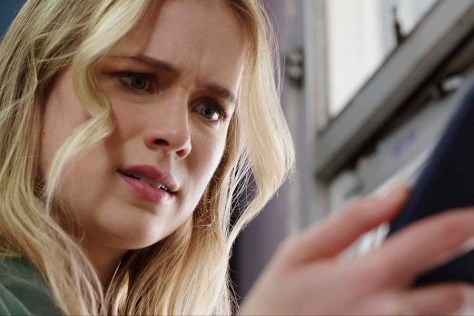
When the first Mortal Kombat movie came out in the late summer of 1995, it was amid a string of early attempts like Double Dragon and Street Fighter to adapt fighting video games for the big screen. While all three titles feature fantastical elements, what set Kombat apart was an over-the-top brutality that relied upon a gratuitous amount of gore. New Line Cinema knew an R-rating would hurt the film’s box office viability, so it opted for a PG-13 version that may have pulled punches but brought in enough money to spawn a sequel a couple years later. Times have changed and audiences are now much more receptive to R-rated material, so Mortal Kombat has been brought back yet again but this time, it contains the exaggerated violence and bloody melee that fans pined for the first time around.
Diverting from the source material, the story this time revolves around Cole Young (Lewis Tan), a down-and-out MMA fighter whose dragon-shaped birthmark turns out to be an invitation of sorts to an otherworldly tournament called Mortal Kombat. The dark realm known as Outworld is one win away from taking over our Earthrealm, prompting the lightning god Raiden (Tadanobu Asano) to recruit marked individuals like Young and brash mercenary Kano (Josh Lawson) to defend their universe. Aiding in their effort are brothers Liu Kang (Ludi Lin) and Kung Lao (Max Huang), while Outworld baddies Shang Tsung (Chin Han) and Sub-Zero (Joe Taslim) summon all manner of bloodthirsty brawlers to hinder Earth’s chances.
With recent successes like Detective Pikachu and Sonic the Hedgehog, Hollywood again returns to the well of 1990s video game nostalgia but things are a bit different with this entry. Those two films were based on kids’ games and remain family-friendly PG fare but Mortal Kombat is, at last, true to the “rated M for Mature” nature of its source material. To that end, its authenticity to the experience of the video game may be enough to satiate the bloodlust of the franchise’s fans but isn’t likely to win over casual moviegoers. New characters are introduced with little fanfare and dispatched with even less regard, while the exposition-heavy dialogue does heavy lifting in between the numerous fight scenes to string together a cohesive yet painfully derivative plot.
1995’s Mortal Kombat was far from a cinematic masterpiece — and its sequel even less so — but that film at least had a knowing sense of how ridiculous the excesses of the video game were and played into them properly. The most disappointing aspect of this reboot is how fatally self-serious it is, giving into Hollywood’s penchant to “grittily reimagine” material that was intentionally corny at the outset. Besides a few well-earned bits of fan service and meta humor from the Kano character, first-time director Simon McQuoid treats this material with bone-headed gravitas intended to revitalize a franchise rather than faithfully render the tone of the video game. When Young inquires “Lord Raiden, can you send anyone anywhere?”, I howled with laughter at his stoicism while asking such a preposterous question but I doubt the movie was laughing along with me.
Fortunately, McQuoid still sees the value in the superpowers these characters possess and the bloody bedlam that they inevitably produce. The video game series is famous for its Fatalities, signature finishing moves of outlandish overkill that translate nicely to this R-rated iteration of the fighting game. My personal favorite implements the sharp-brimmed hat of good guy Kung Lao against the winged terror known as Mileena. But in between these flights of blood-soaked fancy, there is a movie that wants desperately to be taken seriously on the merits of its characters and story. It may be glib to suggest that I’ve grown past this particular franchise but would be more apt to say that we as a society have likely outgrown the need for much more Mortal Kombat kontent.
Score – 2/5
New movies coming this weekend:
Premiering on Amazon Prime is Tom Clancy’s Without Remorse, an action thriller starring Michael B. Jordan and Jodie Turner-Smith about a Navy SEAL who goes on a path to avenge his wife’s murder, only to find himself inside of a larger conspiracy.
Streaming on Netflix is The Mitchells vs. the Machines, an animated comedy starring Abbi Jacobson and Danny McBride about a family road trip that is interrupted by the sudden worldwide takeover of evil robots.
Also debuting on Netflix is Things Heard & Seen, a horror movie starring Amanda Seyfried and James Norton about an artist who marriage begins to reveal a darkness as she and her husband relocate to a storied new house.
Reprinted by permission of Whatzup








